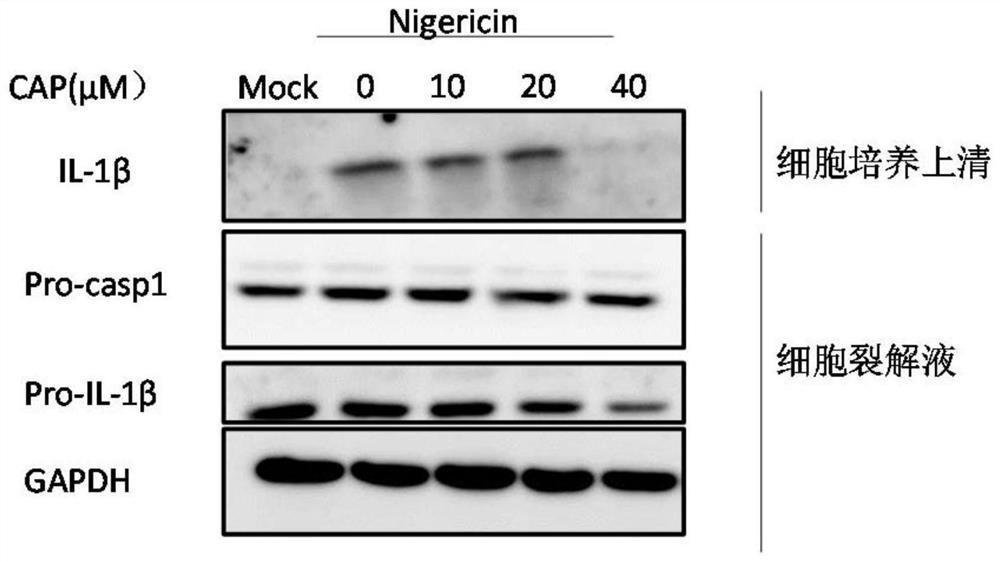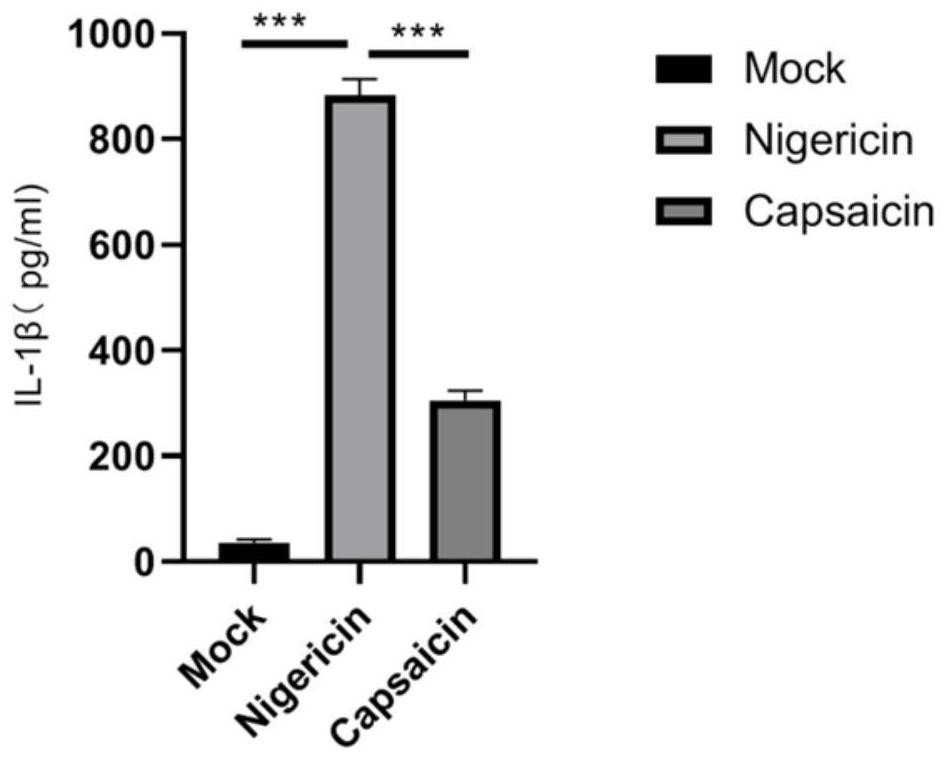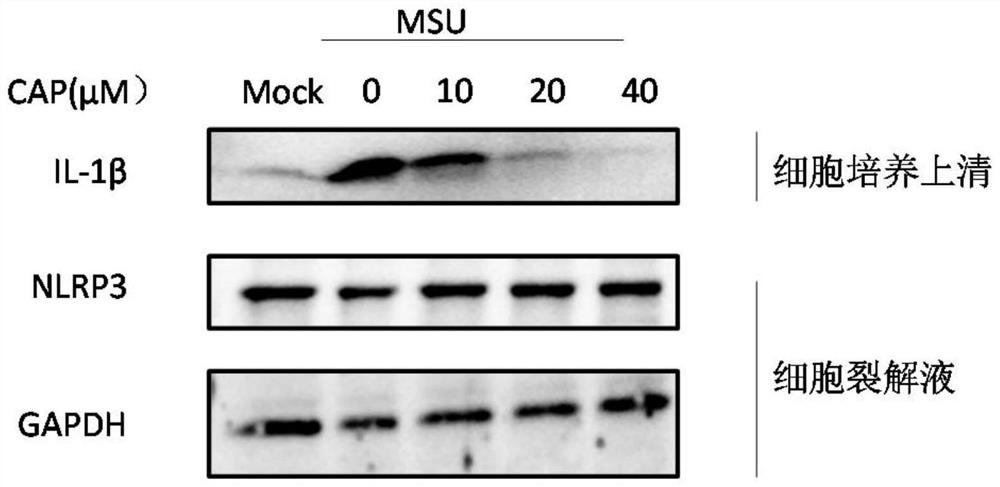Application of capsaicin in inhibiting nlrp3 inflammasome activation
A technology of inflammasomes and capsaicin, which is applied in the direction of anti-inflammatory agents, organic active ingredients, non-central analgesics, etc., can solve the problems that have not been reported in the research, and achieve the effect of high biological safety
- Summary
- Abstract
- Description
- Claims
- Application Information
AI Technical Summary
Problems solved by technology
Method used
Image
Examples
Embodiment 1
[0050] This example illustrates the inhibitory effect of capsaicin on IL-1β processing, maturation and release downstream of the NLRP3 inflammasome pathway.
[0051] (1) Acquisition of mouse bone marrow-derived macrophages (BMDM): Bone marrow cells of C57 mice (purchased from Shanghai Southern Model Bio Co., Ltd., SPF grade 8-week-old male mice) were obtained according to 1×10 6 The density of cells / ml was inoculated into a large dish, and the supernatant containing 20% (v / v) L929 cells (L929 cells were purchased from Shanghai Kebai Company, product number CBP60878, laboratory cultured L929 cells to obtain medium containing secretions) and 10% (v / v) fetal bovine serum (purchased from Shanghai Weike Biotechnology Co., Ltd., product number S1580-500) was cultured in DMEM medium for 5 days, and the DMEM complete medium containing L929 cell supernatant was replaced every 3 days. .
[0052] (2) In a 24-well plate, according to 5 × 10 5 BMDM obtained in step (1) was seeded with ...
Embodiment 2
[0059] This example is used to illustrate the effect of capsaicin on ROS production during NLRP3 inflammasome activation.
[0060] (1) Acquisition of BMDM cells: the same as step (1) of Example 1.
[0061] (2) In a six-well plate, according to 2 × 10 6 BMDM was seeded overnight at a density of 10 cells / well. The next day, LPS with a final concentration of 100 ng / ml was added for 3 h, then capsaicin with a final concentration of 40 μM was added for 1 h, and Nigericin with a final concentration of 5 μM was added for 30 min, the supernatant was removed, and digested and dissociated. A cell suspension was obtained from the cells, PBS buffer containing ROS fluorescent probe DCFH-DA (purchased from Thermo Fisher, catalog number C2938) was added, and the cells were incubated in the dark for 15 min, and the level of ROS in the cells was detected by flow cytometry. The result is as Image 6 as indicated (LPS+Capsaicin: treatment group added with LPS and Capsaicin only; Nigericin+Cap...
Embodiment 3
[0064] This example is used to illustrate the inhibitory effect of capsaicin on ASC oligomerization events in the process of NLRP3 inflammasome activation.
[0065] (1) Acquisition of BMDM: the same as step (1) of Example 1.
[0066] (2) In a six-well plate, according to 2 × 10 6 BMDM was seeded overnight at a density of 10 cells / well. The next day, LPS with a final concentration of 100 ng / ml was added for 3 h, then capsaicin (CAP) with a final concentration of 40 μM was added for 1 h, and Nigericin with a final concentration of 5 μM was added for 30 min, and the supernatant was removed. NP-40 lysis buffer containing protease inhibitors was added to lyse the cells, and the cells were incubated on ice for 30 min with shaking. Afterwards, a part of the cell lysate was taken as the internal reference for the next immunoprecipitation experiment, and the remaining lysate was centrifuged at 6000 × g for 10 min at 4°C. Take the pellet, wash it three times with PBS buffer, and then...
PUM
 Login to View More
Login to View More Abstract
Description
Claims
Application Information
 Login to View More
Login to View More - R&D
- Intellectual Property
- Life Sciences
- Materials
- Tech Scout
- Unparalleled Data Quality
- Higher Quality Content
- 60% Fewer Hallucinations
Browse by: Latest US Patents, China's latest patents, Technical Efficacy Thesaurus, Application Domain, Technology Topic, Popular Technical Reports.
© 2025 PatSnap. All rights reserved.Legal|Privacy policy|Modern Slavery Act Transparency Statement|Sitemap|About US| Contact US: help@patsnap.com



